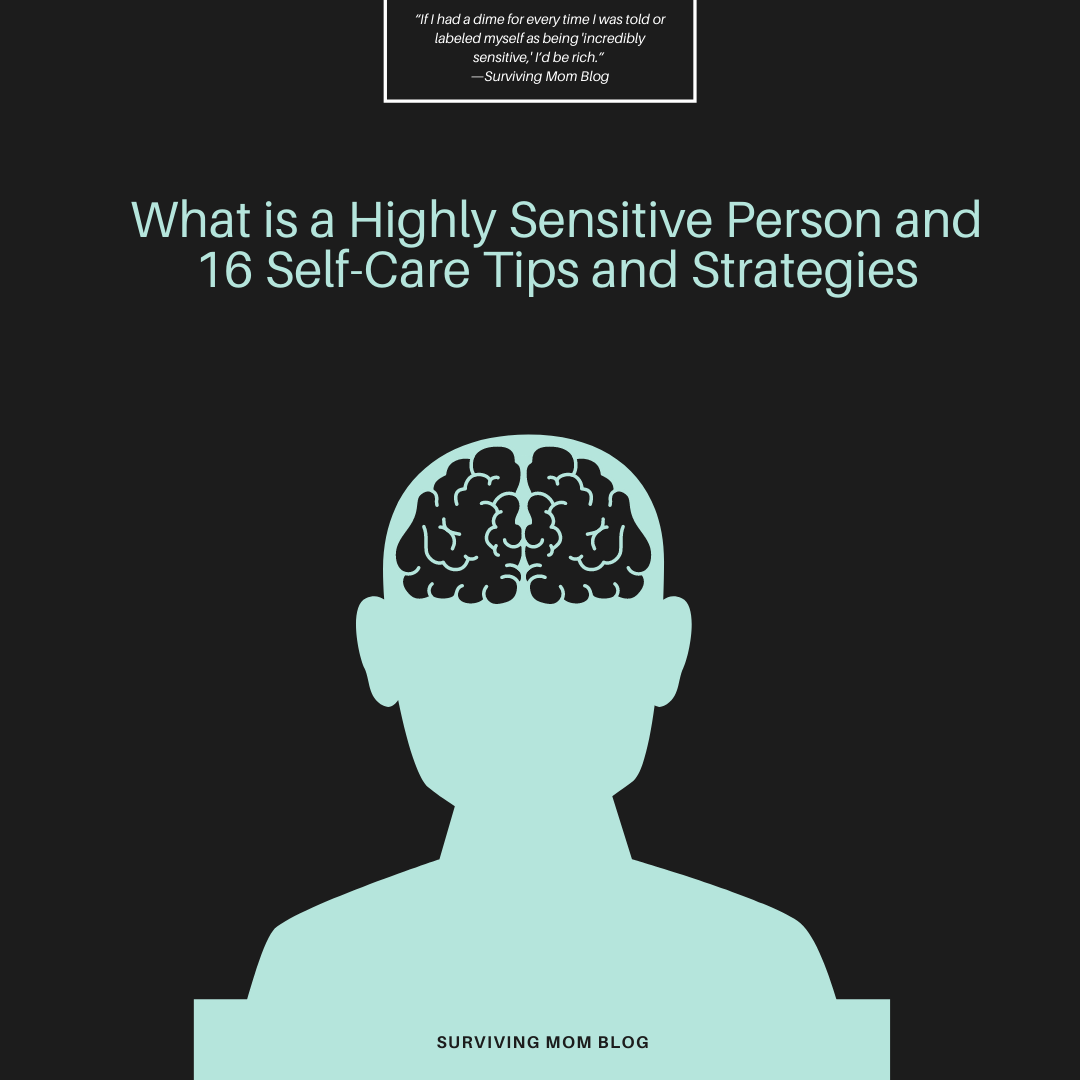
If I had a dime for every time I labeled myself or was described as “incredibly sensitive,” I’d be rich. In fact, I spent my entire life feeling like I was viewing the world through a very different lens than others. Now I know that there is a term to describe my sensitivity, known as a highly sensitive person (HSP). Unsure of what that means? Look no further. This post delves into the characteristics of the highly sensitive person and specific forms of self-care for HSPs.
What is a highly sensitive person?
Highly sensitive person was first researched in 1991 by psychologist Dr. Elaine Aron. HSP describes a personality trait that affects 15-20% of the population. Also known as Sensory Processing Sensitivity (SPS), this term describes those with increased central nervous system sensitivity. This sensitivity can be physical, emotional, and social. As a result, people with this type of personality process information very deeply and have an increased awareness to stimuli in their environment (highlysensitiverefuge.com, 2019) .
It is important to note that HSP is NOT considered a disorder or diagnosis. Sensitivity is a personality trait, and HSPs experience sensitivity more than the average person. Although Sensory Processing Disorder (SPD) may have overlapping symptoms with HSP, they are not interchangeable (verywellmind.com, 2020).
How do I know if I’m an HSP?
Dr. Aron came up with a self-test, “Are you highly sensitive?” There are 27 statements, and if more than 14 of them are true, then you are likely a highly sensitive person. There is a separate test for children. This includes 23 statements, and if 13 or more of those statements are true (mostly true or was once true for a long period of time), then it is likely your child is highly sensitive. You can access both tests here.
It should be noted that with all personality tests, there is nothing that can definitively determine HSP. As with all personality tests, these are meant to give you a deeper understanding of yourself and/or your child (hsperson.com, 1996).
According to Dr. Aron, there are 4 aspects of high sensitivity, which almost every HSP will have, known as D.O.E.S. (sharonselby.com, 2020):
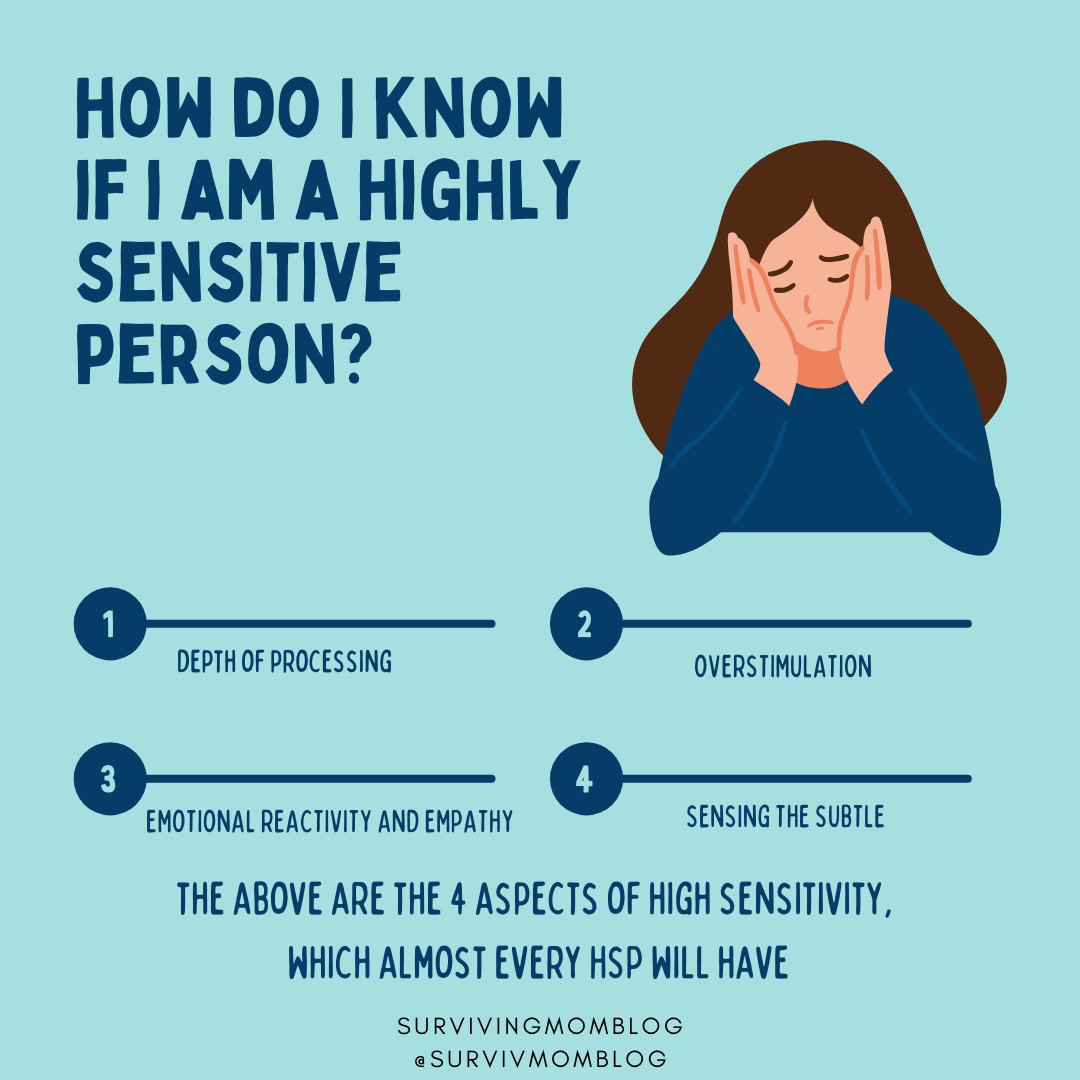
(1) Depth of processing
HSPs often take time to think things over. They are conscientious and thorough, reflecting on their experiences and giving detailed answers. I overanalyze situations and encounters with others. I do this when trying to figure out solutions to problems, and also when reflecting on what was said to me and what I said to others.
(2) Overstimulation
HSPs experience over arousal/ overstimulation due to some or all of their five senses. Examples of this can be feeling overwhelmed due to noises, large crowds, and/or new places. I can trace this back to when I was a child, complaining to my mother that the kids on the bus were too noisy. I would feel overwhelmed by loud noises and sounds. As an adult, I still get overwhelmed due to sensory overload, and large crowds and changes are very stressful.
(3) Emotional reactivity and empathy
HSPs are emotionally reactive to both positive and negative situations and experiences. They feel more and are deeply moved by the world around them. This can mean avoiding violence on TV, crying at commercials, and empathizing with other people’s feelings.
This aspect of HSP resonated with me the most. I feel EVERYTHING, good and bad. I appreciate every kind gesture and word, and am often moved to tears. The beauty of the world touches my heart. That sensitivity applies to negatives as well. I literally run from the room when I hear the music for ASPCA. I have cried hysterically at images of suffering. I cry at every single movie I have ever watched (this can be happy tears and/or sad tears), and I cry at too many commercials and songs to count. Although not all HSPs are empaths (which is different than having empathy, which HSPs possess greatly), I am both an HSP and an empath. This means that I can sense what others are feeling, and I feel their feelings too.
(4) Sensing the subtle
This can be subtle changes in a room such as lighting, or it can mean picking up on a person’s intricacies. HSPs are perceptive, and children like this are often considered wise beyond their years. I have an incredibly strong sense of smell and hearing, and often pick up on smells and sounds that others don’t notice. Additionally, I’ve always noticed subtleties with people, which can be an advantage or disadvantage depending on the situation.
If you’d like to read more about Dr. Aron’s work on HSP, there are several books she has written (click the links below):
3- The Highly Sensitive Parent
self-care tips and strategies for the Highly Sensitive Person
Being a highly sensitive person means that you are compassionate, thoughtful, and empathetic. You feel and care deeply. Those are all wonderful things. However, it is easy for an HSP to get overwhelmed and stressed. As a result, practicing self-care for HSPs is non-negotiable. Here are specific forms of self-care for HSPs. (willfrolicforfood, 2017):
(1) Sleep
Everyone needs sleep, but HSPs are more sensitive to the negative effects of lack of sleep. Therefore, making sure to get enough sleep is helpful for HSPs in navigating an already overstimulating world (psychologytoday.com, 2011).
(2) Setting boundaries
Again, boundaries are necessary for everyone. However, HSPs must be extra careful to set boundaries with others, as well as ourselves. We must say no to pressures that make us feel overwhelmed and understand that it is necessary to set those limits.
(3) Avoid stressors
Situations will cause us to feel overwhelmed and/or overstimulated. Therefore, we must be aware of our stressors (such as large crowds, scary movies, certain people), and do our best to avoid them. This can also mean lowering lights in the room or wearing noise canceling headphones.
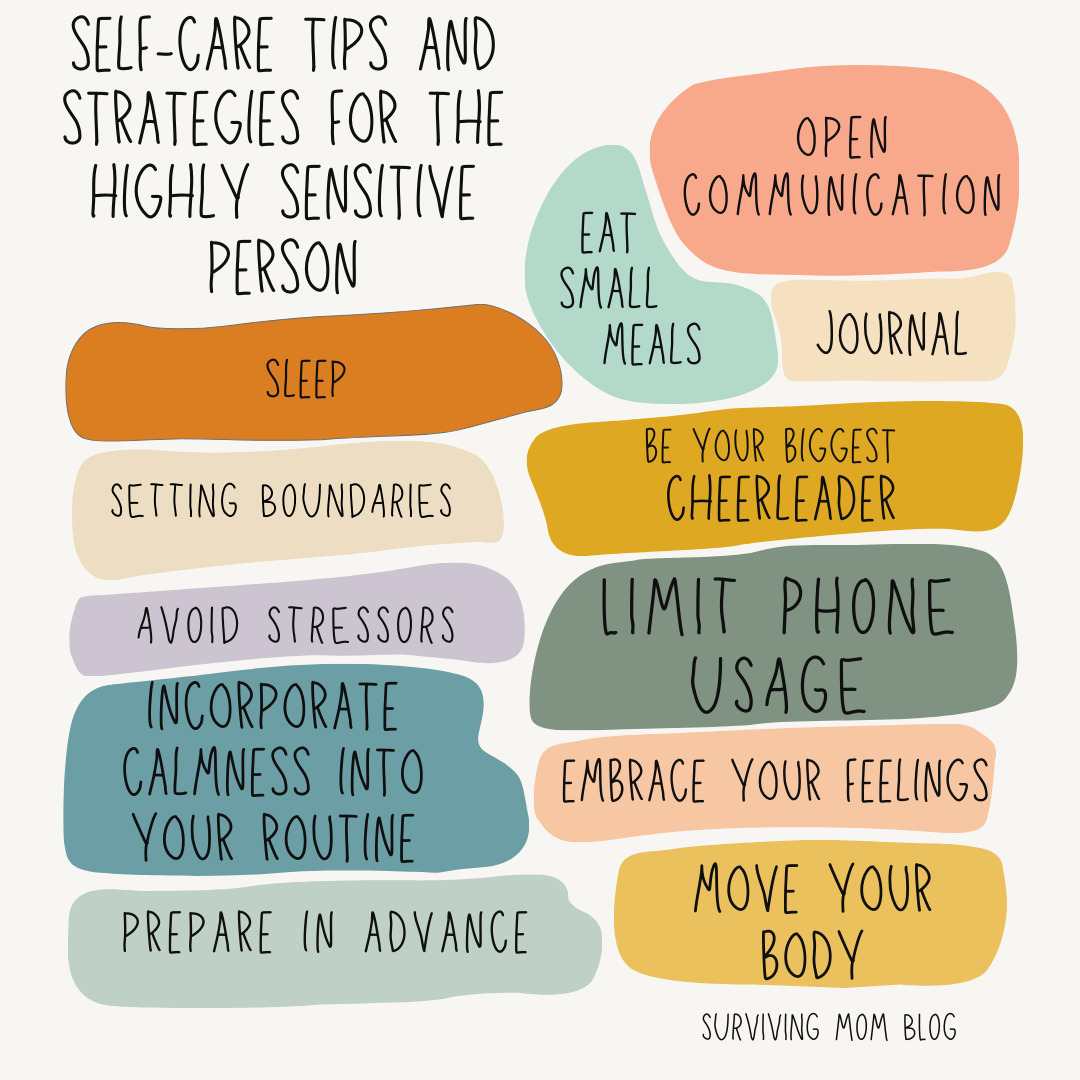
(4) Incorporate calmness into your routine
Set up small chunks of time during your day where you can recharge and soothe your senses. Whether that means taking a ten-minute break in your office or going into a room and locking the door, try to find a place where you feel safe. Use that time to decompress. That can mean reading a book, dimming the lights (if possible), meditating, doing breathing exercises, or laying your head on a pillow. Additionally, make sure you have a space in your home where you can go to that feel comforting. Have an area (or several, if possible) designated for you to relax.
(5) Prepare in advance
Although not all HSPs are introverts, it is very emotionally and physically draining to feel so deeply. Therefore, if you know that you are going to have a stressful or hectic day, incorporate time around those encounters for you to decompress.
(6) Open communication
We cannot expect people to be mind readers. Therefore, we must be honest with others about our sensitivities. If someone says something that hurts your feelings, be honest about it. HSPs take things to heart, so clearing the air is necessary to our emotional well-being. It’s also important to be honest with those around us about our needs, such as requiring alone time each day and staying away from loud areas.
(7) Eat small meals throughout the day
HSPs are often more prone to feeling hangry (angry plus hungry). Therefore, make sure to have well-balanced meals and snacks every few hours to maintain blood sugar levels. I am hypoglycemic, so it is crucial for me to eat small meals every few hours so that my blood sugar levels don’t drop. When I’m busy and I skip a meal, my body and mind pay the price for it.
(8) Keep a journal
I’ve spoken about my love of journaling for both kids and adults. Writing down feelings is especially helpful for HSPs. It is a great outlet for our emotions, and it provides us with a safe space to put our feelings into words and explore our thoughts. Awareness of our sensitivities is crucial, and journaling helps us to be more self-aware.
(9) Be your biggest cheerleader
HSPs are often perfectionists, and we try our best at everything we do. Failure can be extra difficult for HSPs. Therefore, we must be intentional with our thoughts and make sure to celebrate and take pride in our efforts and accomplishments, big or small.
(10) Limit phone usage
The stimulation from phone calls and screen time can be very overwhelming and draining for HSPs. Therefore, put your phone on “do not disturb” when you are doing other activities or need to decompress. Take time away from social media as needed and screen your phone calls to avoid unsolicited callers.
(11) Embrace your feelings
Yes, the world is a more intense place for HSPs. However, we see and feel beauty more deeply too. Rather than fighting our sensitivity, embrace the benefits it has to offer. Respect and validate your own feelings. Remind yourself that although others may not feel the same way, that does not make our perceptions any less valid. Allow yourself to feel whatever it is you are feeling. I often feel better after a good cry (or two, or even three), so let your feelings out!
(12) Make your home a source of comfort
Whether it’s limiting background noises such as the TV in your house, playing soft music, or reducing clutter, make sure that your house is a place that promotes calm rather than another stimulant. I know that a clean house is a must-have for me, as walking around and seeing a mess makes me very flustered. I also found cleaning products that have scents that are soothing rather than over-stimulating.
(13) Be one with nature
HSPs appreciate the beauty of even the smallest things, and nature is no exception. Make sure to take time to go outside. Whether it is taking a walk or finding a spot among trees, find an outdoor area that calms your mind.
(14) Move your body
Yoga, Pilates, or any form of exercise is important to decompress and elevate your mood. Stretching is another great form of relaxation and will boost your spirits.
(15) Embrace your senses
Find out what smells bring comfort to you and incorporate them into your life. That can mean essential oils, scented candles, playing instrumental music, wearing soft fabrics, self-message, or taking baths.
(16) Be creative
HSPs are often creative, so take the time to explore your creative side. Whether it is drawing, painting, writing, etc., it’s important to express yourself. It doesn’t matter if you consider yourself “good” at it, as long as it brings you contentment.
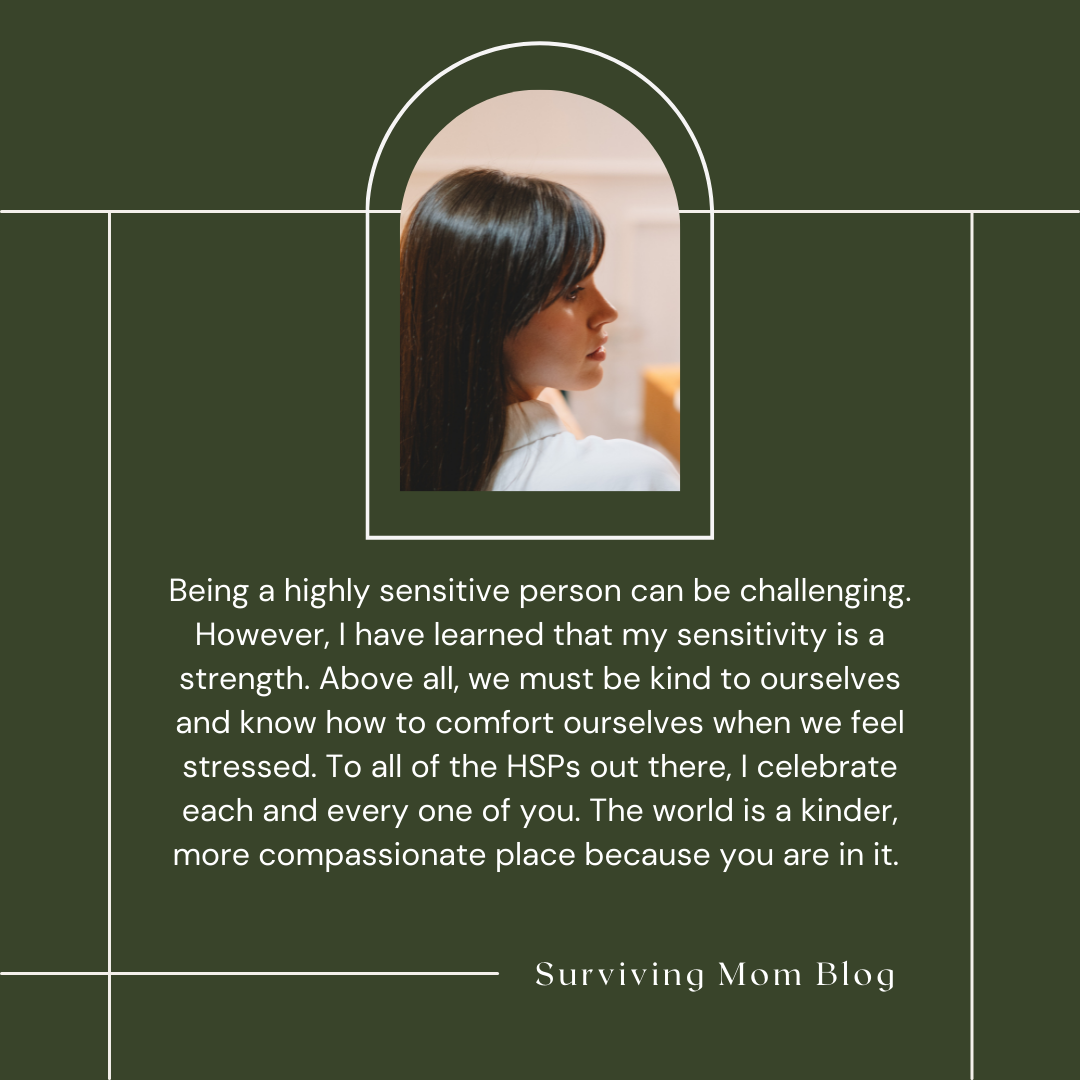
Being a highly sensitive person can be challenging. However, I have learned that my sensitivity is a strength. Caring and feeling deeply isn’t a bad thing, in fact, it is wonderful. However, HSPs need to be aware of how we are affected by our surroundings and make necessary accommodations to prioritize our mental health and self-care. Above all, we must be kind to ourselves and know how to comfort ourselves when we feel stressed. To all of the HSPs out there, I celebrate each and every one of you. The world is a kinder, more compassionate place because you are in it.
Disclaimer
This post may contain affiliate links. If you purchase a product via my link I may receive a small commission at no additional cost to you. Please visit our disclaimers here

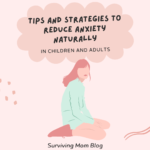



Naomi P Lane says:
Wow I never really thought about this but I answered yes to every single category here! I remember as a child of about five years old bursting into tears at breakfast because there was classical music playing. My parents asked me what was wrong and I said the music was just so sad. I always play music really low and turn lights off whenever possible. I really hate loud noise and feel very stressed my it.
Thank you for sharing this. I always thought I was of average sensibilities, but now I think I’m a little different.
Randi says:
Wow, sounds like you have a lot of HSP characteristics! I’m so glad you found this informative, and it gave your further insight!
_innerjourney_ says:
Wow… This is a very useful and we’ll written post. I read it because I’m a mother of a HSP. Thanks for the insights and tips. They’ll be of great value to me. ???
Randi says:
I’m so glad you found the post and strategies helpful for your child with HSP! I really appreciate your kind words. Being an HSP is a blessing, but we need support and understanding from our loved ones. I think it is wonderful that you are doing so for your child <3